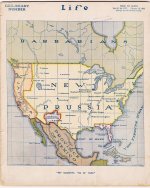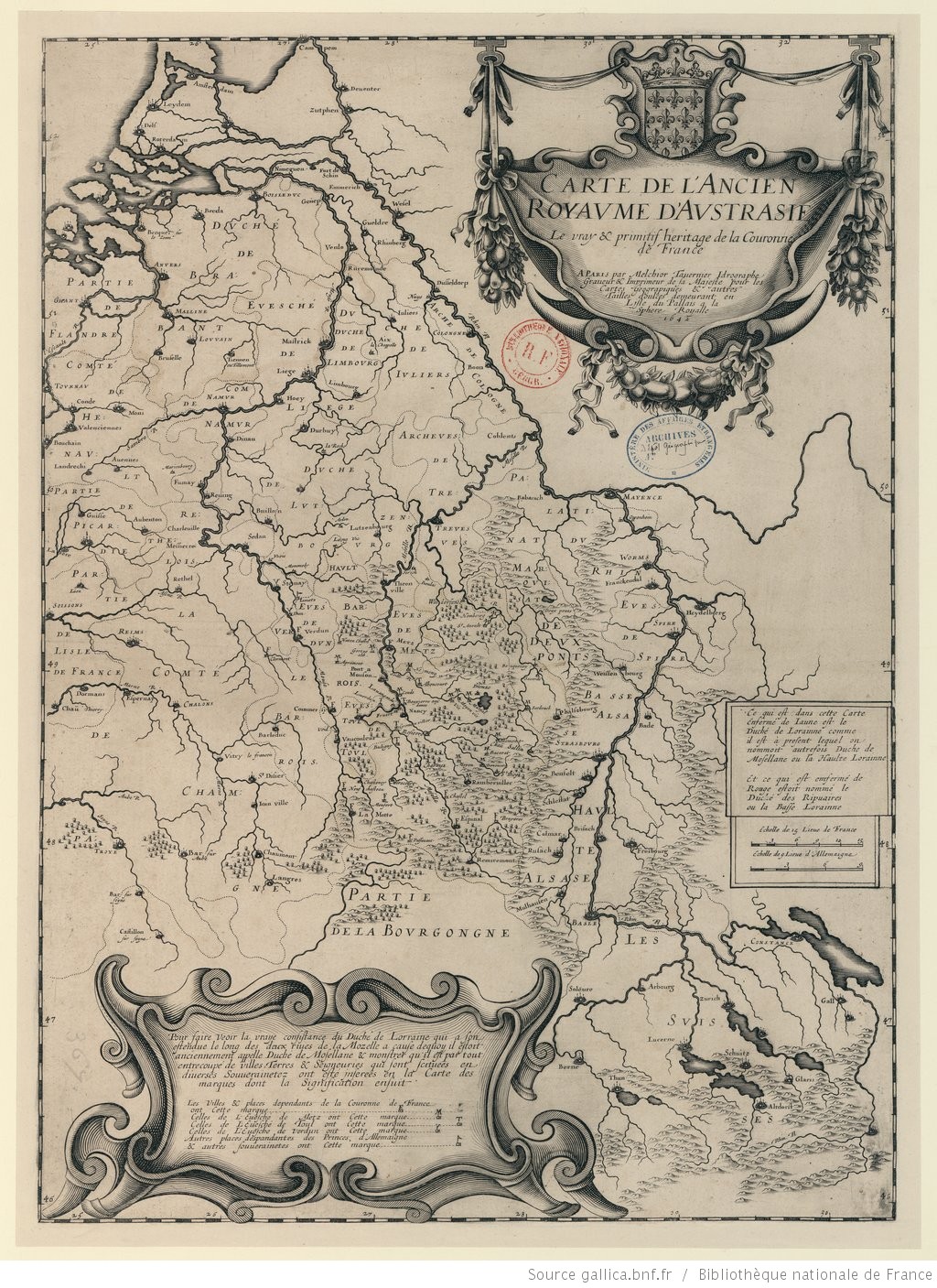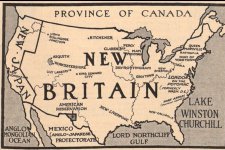In general Ireland’s constitution strikes me very much as being the reforms the British Liberals wanted a century ago. Not just the Senate which is essentially a Lords reform proposal, but also the lower house elected by STV. I suppose it makes sense considering the old linkages between British liberalism and the Home Rule movement, but it’s a little funny to think about.Well, why wouldn't it?
...OK, that's worthy of the thread.
While Lord Mayors also still exist in Britain itself, former British colonies often preserve usages that have ceased to be used in Britain itself:

A similar example is the fact that the Dáil in the RoI has university seats (albeit for the upper house).
-
Hi Guest!
The costs of running this forum are covered by Sea Lion Press. If you'd like to help support the company and the forum, visit patreon.com/sealionpress
You are using an out of date browser. It may not display this or other websites correctly.
You should upgrade or use an alternative browser.
You should upgrade or use an alternative browser.
Things that look like alternate history but aren't
- Thread starter Meadow
- Start date
I've made that observation before as well, there is definitely a connection. It feels like part of the same theme that the Chartists' leader and only MP (for Nottingham) was an Irishman named Feargus O'Connor.In general Ireland’s constitution strikes me very much as being the reforms the British Liberals wanted a century ago. Not just the Senate which is essentially a Lords reform proposal, but also the lower house elected by STV. I suppose it makes sense considering the old linkages between British liberalism and the Home Rule movement, but it’s a little funny to think about.
frustrated progressive
SLPing Through the Cracks
I've often wondered what he might have accomplished if not for the temptations of Venus...I've made that observation before as well, there is definitely a connection. It feels like part of the same theme that the Chartists' leader and only MP (for Nottingham) was an Irishman named Feargus O'Connor.
Are you thinking of Parnell?I've often wondered what he might have accomplished if not for the temptations of Venus...
frustrated progressive
SLPing Through the Cracks
In my recollection O'Connell started succumbing to the mental derangements of advanced syphilis, at the height of his popularity.Are you thinking of Parnell?
Ah, I take your meaning.In my recollection O'Connell started succumbing to the mental derangements of advanced syphilis, at the height of his popularity.
frustrated progressive
SLPing Through the Cracks
I did about four seconds of research and apparently, while that's what most contemporaries thought, there's no solid evidence for him even having syphilis, and his mental fragility could have come from any number of other reasons. Serves me right for being lazy, I suppose.Ah, I take your meaning.
As seen in my 2023 Canada travelogue, there's a sport stuff shop on Clifton Hill in Niagara Falls that sells baseball caps of every nation...including South Vietnam.
Not surprising given how nearly all Vietnamese-Americans are descended from southern exiles.
There's a similar thing in Doncaster (and other places) where Iranian/Persian delicatessans often use the Shah-era flag on their signs. I was a bit surprised to find a case of it on sports memorabilia though!Not surprising given how nearly all Vietnamese-Americans are descended from southern exiles.
LSCatilina
Never Forget Avaricon
- Location
- Teuta Albigas - Rutenoi - Keltika
- Pronouns
- ēs/xsi
That must be why they call it shah-rcuterie.There's a similar thing in Doncaster (and other places) where Iranian/Persian delicatessans often use the Shah-era flag on their signs. I was a bit surprised to find a case of it on sports memorabilia though!
Avian Overlord
Mystical American Freedom Bird
See also how the United States' constitutional structure is a version of the 18th century British constitution with all the branches democratized as opposed to how Britain just transferred all power to the elected branch.In general Ireland’s constitution strikes me very much as being the reforms the British Liberals wanted a century ago. Not just the Senate which is essentially a Lords reform proposal, but also the lower house elected by STV. I suppose it makes sense considering the old linkages between British liberalism and the Home Rule movement, but it’s a little funny to think about.
TheHatMan98
Well-known member
Which led to this Central Powers victory parody of it from Life magazine, where they forgot to change the Japanese part despite them being on the Entente side (and also added Romanian Jamaica despite them being Entente as well - though I don't think they'd joined the war at this point tbf).An anti-Entente propaganda poster from WW1 speculating the U.S. After an Anglo-Japanese invasion.
View attachment 81776

LSCatilina
Never Forget Avaricon
- Location
- Teuta Albigas - Rutenoi - Keltika
- Pronouns
- ēs/xsi
"American reservation" : it's uncanny, almost like if the prospect of being stuck in a reservation was unappealing.
The US Constitution specifically represents a republicanized version of a Tory take on the British constitution, due to the American suspicion of Parliament taxing them without their consent - even at the time the House of Commons was clearly the strongest element in the British constitution, even if not as strong as it later became. All of which is to say, that’s true.See also how the United States' constitutional structure is a version of the 18th century British constitution with all the branches democratized as opposed to how Britain just transferred all power to the elected branch.
I’d say that's a little different to the Irish case, though, because the American Revolution was a rather British event, fought by people who regarded themselves as fighting for the rights of freeborn Englishmen, in the great tradition of the seventeenth century struggles between King and Parliament. It’s not really a surprise that their eventual constitution would represent a certain view of the British constitution. On the other hand, Ireland was clearly not fighting for that, but rather to free itself against centuries of oppression by the British Empire. There was no idolization of British constitutionalism, even the idolization of Grattan’s Parliament had fallen away at this point. It’s strange to think that despite all that, there was clearly a lot of British influence under the hood from the days when people could envision an Irish nation existing peacefully inside the British Empire, and that it made itself known in the Irish constitution. I suppose it’s revealing about the ambiguities of decolonization. Or something.
frustrated progressive
SLPing Through the Cracks
I have no knowledge on the subject and no stake in any resulting argument, I'm genuinely just asking here:It’s strange to think that despite all that, there was clearly a lot of British influence under the hood from the days when people could envision an Irish nation existing peacefully inside the British Empire, and that it made itself known in the Irish constitution. I suppose it’s revealing about the ambiguities of decolonization. Or something.
Could part of this similarity have been because the Constitution of the Free State was drafted after the Anti-Treaty people split off, and so the people who had the most influence on the Free State's Constitution were disproportionally likely to model their institutions off Britain's rather than breaking with them simply for the sake of it-and by the time 1937 came around and De Valera was having his own Constitution written, these features were simply the way things were done and no longer a bone of active political contention?
Makes you wonder what a fully fleshed-out Constitution of the original Republic would have looked like if the Republic could have been consolidated.
We'll find out soon enough.Makes you wonder what a fully fleshed-out Constitution of the original Republic would have looked like if the Republic could have been consolidated.
Today (or yesterday) I learned that there are 1930s Chinese language covers of the Stephen Foster classics such as "O Susannah", with the place names suitably changed to Chinese ones.
LSCatilina
Never Forget Avaricon
- Location
- Teuta Albigas - Rutenoi - Keltika
- Pronouns
- ēs/xsi
Map of the ancient kingdom of Austrasia. The true and ancient heritage of the French Crown.

Made in 1642, largely in support to royal claims over large swathes of Lorraine (which is scarcely distinguished from either French or Imperial lands by a yellow border, a red one for Lower Lorraine). You'd be excused if you took this map as illustrating a timeline where the kingdom of France emerged from the Moselle basin, and not the Seine.

Made in 1642, largely in support to royal claims over large swathes of Lorraine (which is scarcely distinguished from either French or Imperial lands by a yellow border, a red one for Lower Lorraine). You'd be excused if you took this map as illustrating a timeline where the kingdom of France emerged from the Moselle basin, and not the Seine.
Today (or yesterday) I learned that there are 1930s Chinese language covers of the Stephen Foster classics such as "O Susannah", with the place names suitably changed to Chinese ones.
My stepfather once had a Farsi cover album of Frank Sinatra songs.


